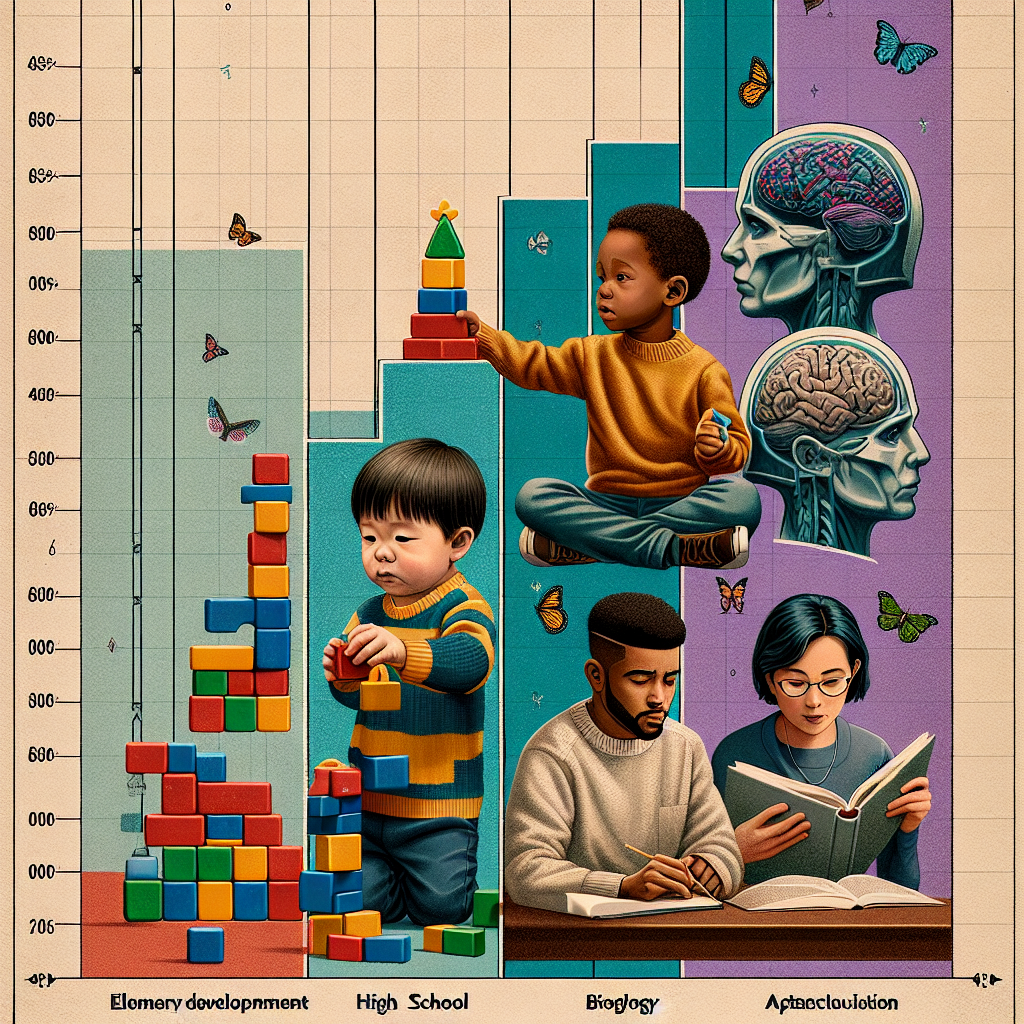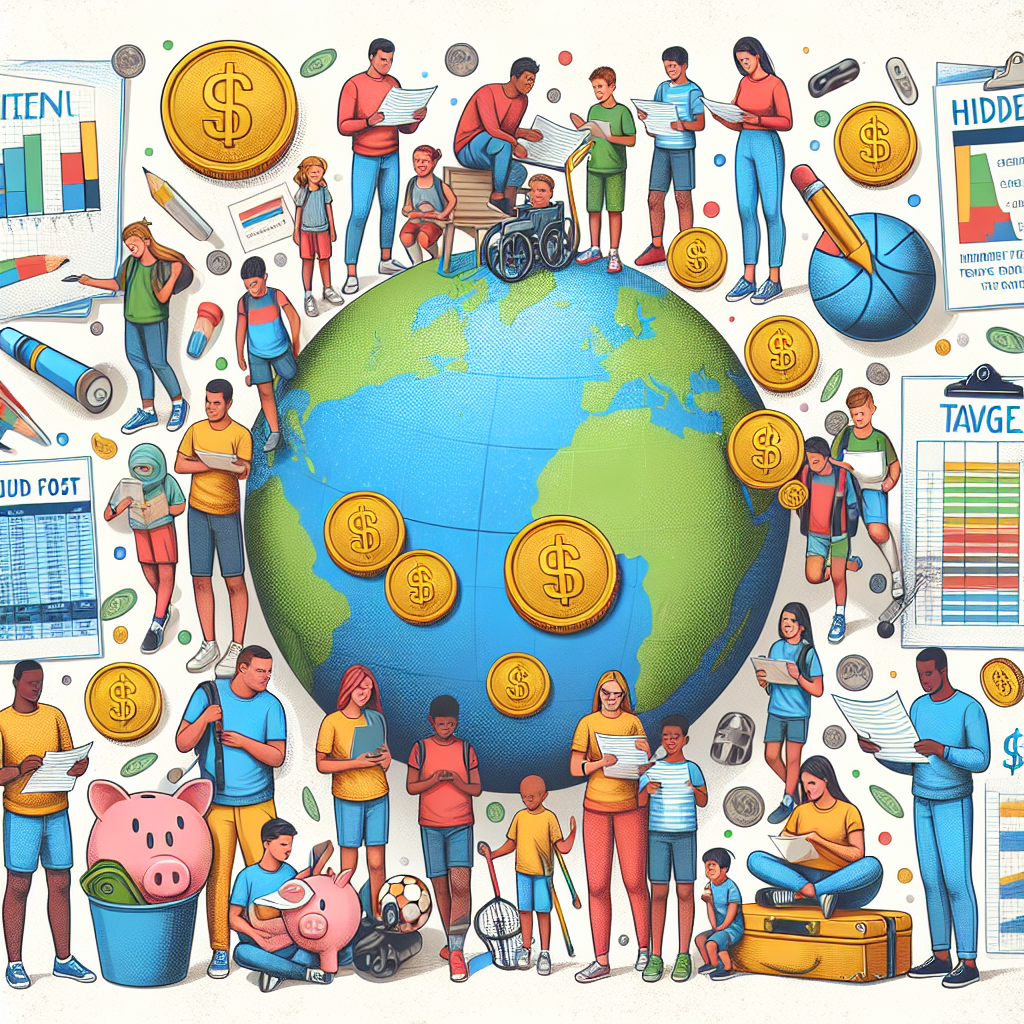Understanding Mental Skills Progression Across Developmental Stages
In the ever-evolving world of psychology and personal development, mental skills progression is an essential concept. It refers to the development of cognitive capacities, emotional regulation, and behavioral strategies as individuals grow. This blog post aims to elucidate age-appropriate mental skills training tailored to various developmental stages, helping children and adolescents enhance their mental faculties effectively.
The Importance of Mental Skills Training
Developing mental skills is vital for success in various aspects of life, including education, sports, and everyday challenges. A structured approach to mental skills training can:
- Enhance cognitive development
- Improve emotional regulation
- Foster resilience and adaptability
- Bolster self-esteem and confidence
- Promote effective communication and social skills
To achieve these benefits, it’s crucial to recognize that mental skills progression is not uniform; it varies significantly across different developmental stages. Below, we will explore effective mental skills training appropriate to various age groups.
Infants and Toddlers (0-3 Years)
Nature of Mental Skills Development
During the earliest stages of life, mental skills are primarily developed through sensory experiences and social interactions. Infants and toddlers learn about their environment and relationships through exploration and play.
Recommended Activities
- Interactive Play: Encourage activities that stimulate senses—like playing with different textured toys or sounding musical instruments—helping infants build cognitive connections.
- Imitation Games: Simple games such as “Simon Says” can enhance attention span and develop basic motor skills, crucial for cognitive progression.
- Story Time: Reading to infants not only nurtures language development but also strengthens their ability to focus and understand narrative flow.
Preschoolers (3-5 Years)
Nature of Mental Skills Development
Preschoolers are at a stage where imaginative play flourishes. Cognitive skills, such as memory, problem-solving, and language are rapidly developing. They begin to form basic emotional awareness and social understandings.
Recommended Activities
- Puzzles and Games: Engage them in simple puzzles to enhance problem-solving skills and spatial awareness. Board games can also introduce turn-taking and strategy.
- Role-Playing: Allow children to act out different scenarios. This enhances emotional intelligence by helping them understand diverse perspectives.
- Creative Arts: Activities such as drawing, painting, or crafting foster creativity while improving fine motor skills.
Early Elementary (6-8 Years)
Nature of Mental Skills Development
As children enter elementary school, they develop more sophisticated cognitive skills. Their ability to think critically, manage emotions, and engage in collaborative activities enhances. Children also become more adept at verbal and written communication.
Recommended Activities
- Structured Learning Environments: Create an atmosphere that promotes independent learning and self-questioning. Encourage children to ask questions and explore solutions.
- Mindfulness Exercises: Simple breathing techniques or guided visualization can help young children manage stress and learn self-regulation strategies.
- Team Sports: Participation in team sports fosters cooperation, discipline, and emotional resilience, crucial aspects of mental skills progression.
Late Elementary (9-12 Years)
Nature of Mental Skills Development
During this stage, children’s executive functioning skills continue to develop. They become increasingly aware of their feelings and those of others. Metacognitive skills—understanding how one thinks and learns—begin to emerge.
Recommended Activities
- Goal Setting: Teach children to set realistic personal goals and track their progress. This promotes accountability and fosters a growth mindset.
- Debate Teams: Joining debate clubs can enhance critical thinking, public speaking skills, and understanding of differing viewpoints, contributing to overall mental skills progression.
- Creative Writing: Encourage journaling or creative writing. This activity supports emotional expression and develops cognitive organization skills.
Adolescents (13-18 Years)
Nature of Mental Skills Development
Adolescents are on the cusp of adulthood, which comes with profound cognitive and emotional changes. They can think abstractly and consider multiple viewpoints. This stage is characterized by the development of self-identity and more complex emotional experiences.
Recommended Activities
- Mentoring Programs: Participation in mentorship can build leadership skills and provide valuable life lessons, reinforcing interpersonal skill sets.
- Stress Management Techniques: Teach them mindfulness practices, yoga, or other relaxation techniques to help manage academic and social pressures.
- Critical Thinking Challenges: Encourage participation in activities that require analytical skills, such as math competitions or science fairs, to foster logical reasoning.
Conclusion: The Role of Caregivers and Educators
Creating a positive environment for mental skills progression is a shared responsibility among parents, educators, and the community. By understanding the unique needs of children at each developmental stage, caregivers can tailor mental skills training to foster resilience, emotional intelligence, and cognitive flexibility. Whether through play, structured activities, or mentorship, encouraging healthy mental skills progression from infancy through adolescence lays a foundation for lifelong success.
Investing in mental skills development is not just about enhancing cognitive capacity; it’s about nurturing well-rounded individuals capable of navigating the complexities of life with confidence and grace.



